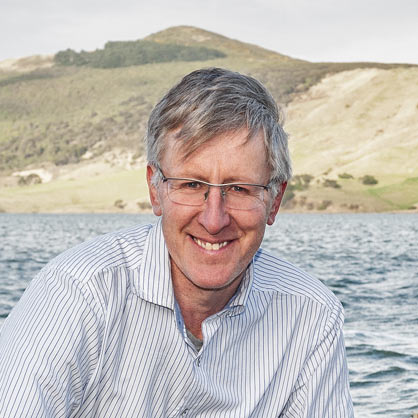Policy school fosters tourism rethink
At the time of writing, Professor James Higham (Tourism) has just spotted an article in the Otago Daily Times that points to some heartening gown-to-town traction in the tourism industry.
The article announces the intention to develop a new regenerative tourism plan for the Queenstown Lakes District and signals that the region is “moving into a new era of thinking around how to create value more broadly for the benefit of people and place”.
This positive policy pivot comes only three months after the Tourism Policy School (TPS) hosted fruitful discussions in Queenstown around that very topic: regenerative tourism.
The global pandemic has raised calls for a planetary vision for the responsible recovery of the tourism sector. “While a regenerative approach to functional self-renewal is longstanding in indigenous wisdom, this line of thinking is new to tourism and wider society,” Higham says.
“It's pleasing to think that the Tourism Policy School may be shaping the future of tourism in one of New Zealand's – and the world's – leading tourism regions.”
Professor James Higham
It has informed the work of the Tourism Futures Taskforce and thought leaders such as Simon Upton (Parliamentary Commissioner for the Environment), Kristin Dunne (Tourism Bay of Plenty), Susanne Becken (Department of Conservation), Rod Oram (independent commentator) and Amanda Pollock (Conscious Travel), all of whom contributed to discussion and debate at the TPS.
Of the galvanising effect of the TPS, Higham says, “There's no doubt that the Tourism Policy School this year advanced important avenues of discussion that may have informed the Destination Queenstown and Lake Wānaka Tourism commitment to regenerative tourism planning. It's pleasing to think that the TPS may be shaping the future of tourism in one of New Zealand's – and the world's – leading tourism regions.”
Convened by the Department of Tourism and Otago Business School and co-directed by Higham, Dr Julia Albrecht, Professor Robin Gauld and Craig Stobo, the TPS is that rare thing: an opportunity to create synergy between the tourism industry and its broad-ranging stakeholders.
This year's third annual forum was attended by 100 invited delegates and brought the research community together with government ministries, regional tourism organisations, business leaders and key industry figures. Tourism Minister Hon. Stuart Nash opened the event and Simon Upton presented a public lecture, providing the opportunity for rich discussions between key actors who need to work towards a shared vision at this critical juncture.
The theme for the 2021 TPS was that thorny and highly urgent one: “Net-benefit tourism”.
“I got a real sense of a collective purpose among the broad-ranging audience,” Higham says. “I was impressed by the common will to rethink and reinvent tourism for a climate-safe and sustainable future that builds social, cultural and environmental, as well as economic, capital.
“The next critical step in this journey is to continue to work together to turn planning into action, to make Queenstown and Wānaka world leaders in regenerative tourism.”
Funding
Ministry of Business, Innovation and Employment
Destination Queenstown
Professor James Higham.


